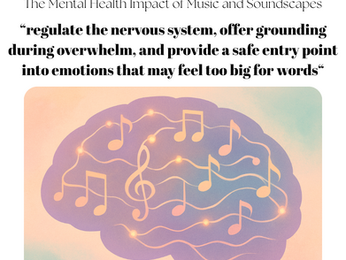Search


Guilt and Mental Health
Guilt is one of the most powerful emotions we experience. At its core, it arises when we believe we have done something wrong, let someone down, or failed to meet our own standards. In small doses, guilt can be constructive, guiding us to repair relationships or make better choices. However, when guilt becomes excessive, misplaced, or chronic, it can weigh heavily on our mental health.
Deborah Marks
Sep 4, 20253 min read


Understanding PTSD
PTSD is a mental health condition that develops after exposure to trauma. While many people experience temporary distress after a traumatic event, PTSD occurs when these symptoms persist for more than a month and significantly interfere with daily life
Deborah Marks
Sep 3, 20252 min read


The Intersection of Climate Anxiety and Mental Health
Australia is no stranger to extreme weather. In recent years, bushfires, floods, and prolonged droughts have left lasting scars on communities and individuals alike. Beyond the physical destruction, these events are fuelling a growing phenomenon known as climate anxiety, a sense of fear, hopelessness, or overwhelm about the state of our planet and its future.
Deborah Marks
Sep 2, 20252 min read


Micro-Moments of Connection: Small Interactions That Improve Wellbeing
It’s human nature to underestimate the power of small gestures, but their impact on mental health is profound. Each positive interaction helps release oxytocin, the hormone that fosters trust and reduces stress. In a world where loneliness and disconnection are rising concerns, even a passing moment of connection can help lower anxiety, lift mood, and remind us that we’re not alone.
Deborah Marks
Sep 1, 20253 min read


Moral Injury: Beyond Trauma in Helping Professions
When we talk about trauma in healthcare, social work, and first responder professions, the focus is often on post-traumatic stress disorder (PTSD). But there is another, quieter wound that doesn’t always get the recognition it deserves: moral injury.
Deborah Marks
Aug 29, 20253 min read


The Mental Health Impact of Music and Soundscapes: Linking Neuroscience with Therapy Practice
Think back to a time when a song gave you goosebumps, or the sound of waves instantly calmed your mind. Music and soundscapes have a profound ability to shape our emotions, focus, and even our physical state. But this isn’t just a pleasant coincidence; neuroscience shows us that sound directly influences the brain in ways that can support healing and emotional wellbeing.
Deborah Marks
Aug 28, 20253 min read